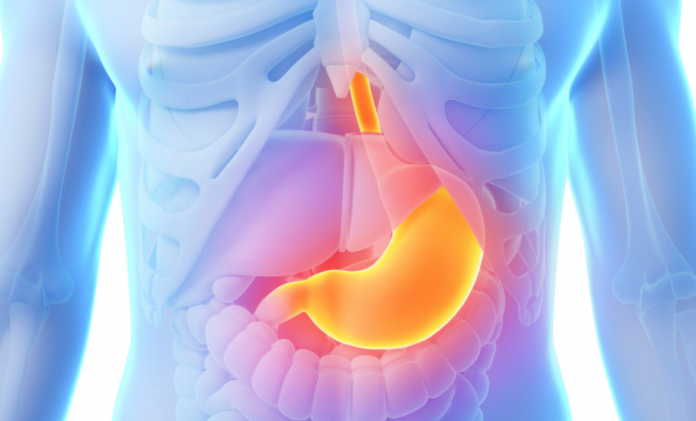Ongoing stomach and digestive problems can be miserable for patients – and are a common cause for visits to a health care professional. Patients are often looking for a prescription to help ease their symptoms and health care professionals want to be able to help their patients. But what if the medication prescribed puts patients at risk?
Proton pump inhibitors (PPIs) are some of the most commonly prescribed medications in Canada. They suppress acid production in the stomach and are highly effective in the treatment of common conditions such as peptic ulcers and gastroesophageal reflux disease (GERD). They may be used for ulcer prevention as well, in people taking ASA or NSAIDs, or in hospitalized patients at risk of stress ulcers.
PPIs can bring relief to patients with long-standing or severe heartburn, and complaints about any side effects are rare. And, with generic versions of the drugs available, PPIs are also less costly. So, what’s the harm?
MORE: DEFINING THE PATIENT EXPERIENCE
Dexlansoprazole, esomeprazole, omeprazole, pantoprazole, pantoprazole magnesium, and rabeprazole are indeed very tolerable, with few day-to-day side effects. But as we’ve gained more experience with these drugs, a list of complications has emerged: pneumonia, hypomagnesemia, fractures, and Clostridium difficile infection have all been associated with PPI use.
Clostridium difficile infection (CDI, or as it’s commonly called “C. diff”) is a bacteria that can cause watery diarrhea, fever, loss of appetite, nausea, and abdominal pain. It is transmitted through stool or through spores in the environment. C diff. is a constant concern in the hospital. It’s reported to occur in 4.6 cases per 1,000 patient admissions, with a mortality rate of 5.7 deaths per 100 cases. Hospitalization and the use of broad spectrum antibiotics are well-known risk factors for C. diff. Other risk factors include residence in a long-term care facility, advanced age, immunosuppression, surgical procedures, comorbidities – and the use of acid-suppressing drugs.
In fact, Health Canada in 2012, issued an advisory about the possible association of C. diff and PPI use. Today, PPI product monographs all carry warnings that a decrease in stomach acid may increase the risk of gastrointestinal infections such as Salmonella, Campylobacter, and C. diff.
CADTH — an independent, evidence-based agency that assesses health technologies — finds and summarizes the research on drugs, medical devices, and procedures. CADTH’s Rapid Response service recently completed three reviews of the evidence on PPIs and C. diff.
The first CADTH review looked at the evidence for the risk of developing a C. diff infection in adults taking PPIs. The review of the evidence showed that there is indeed a link between C. diff infection and the use of PPIs – but that the nature of the link is unclear. There just isn’t enough evidence to prove that PPI use causes the development of a C. diff infection.
MORE: DOCUSATE FOR CONSTIPATION: MONEY DOWN THE TOILET?
The second review looked at whether natural health products such as probiotics could help to prevent C. diff infections in hospitalized patients taking PPIs. A previous CADTH review had found that the probiotic Saccharomyces boulardii may reduce the risk of recurrent C. diff infections in patients taking antibiotics, but wasn’t specific to patients also taking PPIs. However, the question of probiotics for C. diff prevention remains unanswered – the CADTH review was unable to find any evidence on this.
The final CADTH PPI review addressed another question important to this issue. It’s estimated that a significant proportion of patients taking PPIs are actually being prescribed these drugs inappropriately – in other words, they don’t have conditions requiring ongoing PPI treatment or they may be taking the medication at the wrong dose or for too long. With this in mind the CADTH review looked at cessation programs that have been developed to help reduce the use of PPIs. The review of the evidence showed that cessation programs focused on clinicians or patients may be effective in reducing PPI use but it’s unknown whether that reduction leads to fewer C. diff infections or better health outcomes for patients.
So what does all this mean for clinicians prescribing PPIs and for patients taking them? Given that there is a link between PPI use and C. diff infection, careful and thoughtful use of these drugs is warranted. Strategies could include using PPIs at the lowest dose and for the shortest duration possible, depending on a patient’s condition. On demand treatment, rather than continuous treatment, could be tried for some conditions. A careful review of a patient’s medications can help prevent patients that start taking a PPI in hospital inadvertently taking the medication long-term.
MORE: POINT-OF-CARE INR TESTING
If you’d like more information about the CADTH Rapid Response reports on PPIs – or on a variety of other drugs, devices, or procedures – they are all freely available on the CADTH website: www.cadth.ca/RapidResponse. Here you’ll find the reports listed chronologically as they are completed or you can use the search function at the top right of your screen.
To learn more about CADTH, visit www.cadth.ca, follow us on Twitter: @CADTH_ACMTS, or talk to our Liaison Officer in your region: https://www.cadth.ca/en/services/liaison-officer.


